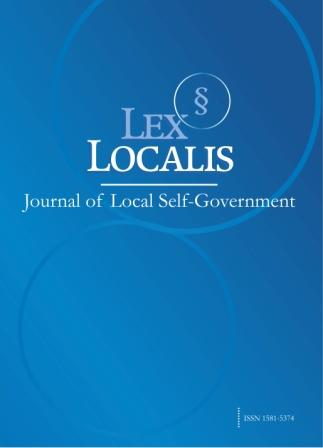Strategic Talent Management in Competitive Markets: A Policy-Linked Approach to Attracting, Developing, and Retaining Key Employees
DOI:
https://doi.org/10.52152/3159Ključne besede:
strategic talent management; key talent; correlation analysis; regression analysisPovzetek
The importance of human resource management to the development of enterprises is self-evident, in order to realize the attraction and retention of key employees in the competitive market, this paper constructs a research model of the factors influencing the attraction and retention of key employees within the enterprise, and puts forward the relevant research hypotheses according to the theoretical basis of strategic human resource management and key talents. Survey questionnaire and statistical analysis are used to conduct empirical research. Through correlation analysis and regression analysis to conduct in-depth research on the influence factors of attracting and retaining key employees within the enterprise. Propose enterprise talent management strategy suggestions on the basis of research conclusions. The correlation coefficients of talent recruitment, talent training, talent selection, talent incentive and talent attraction are all positive, and the significance is less than 0.05. There is a significant positive correlation between talent recruitment, talent training, talent selection, talent incentive and talent attraction. Job satisfaction, sense of organizational support, organizational commitment and employees' tendency to leave are all significantly correlated (significance are less than 0.05) and the correlation coefficients are all negative. There is a negative correlation between job satisfaction, sense of organizational support, organizational commitment and employees' tendency to leave.
Literatura
Zelga, K. (2017). The importance of competition and enterprise competitiveness. World Scientific News, (72), 301-306.
Shaulska, L., Kovalenko, S., Allayarov, S., Sydorenko, O., & Sukhanova, A. (2021). Strategic enterprise competitiveness management under global challenges. Academy of Strategic Management Journal, 20(4), 1-7.
Bethke-Langenegger, P., Mahler, P., & Staffelbach, B. (2011). Effectiveness of talent management strategies. European Journal of International Management, 5(5), 524-539.
Yildiz, R. O., & Esmer, S. (2023). Talent management strategies and functions: a systematic review. Industrial and commercial training, 55(1), 93-111.
Alves, P., Santos, V., Reis, I., Martinho, F., Martinho, D., Correia Sampaio, M., ... & Au-Yong-Oliveira, M. (2020). Strategic talent management: The impact of employer branding on the affective commitment of employees. Sustainability, 12(23), 9993.
Chen, S. Y., Lee, A. Y. P., & Ahlstrom, D. (2021). Strategic talent management systems and employee behaviors: the mediating effect of calling. Asia Pacific Journal of Human Resources, 59(1), 84-108.
Karpenko, A., & Basenko, K. (2017). Highly effective corporate culture as an instrument of talents’ attracting and retaining. Baltic Journal of Economic Studies, 3(4), 101-106.
Jiang, C. (2024, May). Research on the Effectiveness of Talent Introduction and Countermeasures in Small and Medium-Sized Enterprises. In 2024 International Conference on Applied Economics, Management Science and Social Development (AEMSS 2024) (pp. 429-436). Atlantis Press.
ZHU, J. (2013). China attracting global top talent: Central and local government initiatives. In China: Development and governance (pp. 361-368).
Luo, J., & Zhu, K. (2023). The Influential Factors on the Attraction of Outstanding Scientific and Technological Talents in Developed Cities in China. Sustainability, 15(7), 6214.
Ilyukhina, L. A., Bogatyreva, I. V., Makhmudova, I. N., & Ermakova, J. D. (2019). The corporate personnel training system development: the experience of Russian enterprises. European Proceedings of Social and Behavioural Sciences.
Sekerin, V. D., Gaisina, L. M., Shutov, N. V., Abdrakhmanov, N. K., & Valitova, N. E. (2018). Improving the quality of competence-oriented training of personnel at industrial enterprises. Calitatea, 19(165), 68-72.
Zhao, J., Qi, Z., & De Pablos, P. O. (2014). Enhancing enterprise training performance: Perspectives from knowledge transfer and integration. Computers in Human Behavior, 30, 567-573.
Ren, J. (2020). Construction of Personnel Training System Under School-Enterprise Joint Training Mode–Taking Personnel Training of “Network Space Security Major” as an Example. In Cyber Security Intelligence and Analytics: Proceedings of the 2020 International Conference on Cyber Security Intelligence and Analytics (CSIA 2020), Volume 2 (pp. 145-152). Springer International Publishing.
Zainee, I. A., & Puteh, F. (2020). Corporate social responsibility impact on talent retention among Generation Y. Revista de Gestão, 27(4), 369-392.
Alzbaidi, M., & Abu Madi, A. (2023). Talent retention challenges among non-family talented individuals: multiple case studies of family SMEs in Jordan. Employee Relations: The International Journal, 45(6), 1415-1436.
Narayanan, A., Rajithakumar, S., & Menon, M. (2019). Talent management and employee retention: An integrative research framework. Human Resource Development Review, 18(2), 228-247.
Govardhanan, R., & Thiyagarajan, R. (2024). ROLE OF TALENT MANAGEMENT ON EMPLOYEES RETENTION IN SMALL AND MEDIUM ENTERPRISES. COMPUTER, 24(8).
Zaid Megdad & Dilber Çaglar. (2024). The Mediating Role of Strategic Adaptability on the Relationship between Human Resource Management Strategies and Innovation. Sustainability(20),8729-8729.
Gaopeng Zhou & NikHasnaa NikMahmood. (2024). Human resource management strategy and staff performance under Chengdu catering enterprise culture. International Journal of Frontiers in Sociology(9).
Kaliannan Maniam,Darmalinggam Darshana,Dorasamy Magiswary & Abraham Mathew. (2023). Inclusive talent development as a key talent management approach: A systematic literature review. Human Resource Management Review(1).
Daniela Christos,Mark Bussin,Anton Schlechter & Monica Pregnolato. (2017). Gain and retain key talent through these rewards. HR Future(4),32-34.
Objavljeno
Številka
Rubrika
Licenca
Avtorske pravice (c) 2025 Lex localis - Journal of Local Self-Government

To delo je licencirano pod Creative Commons Priznanje avtorstva-Nekomercialno-Brez predelav 4.0 mednarodno licenco.







